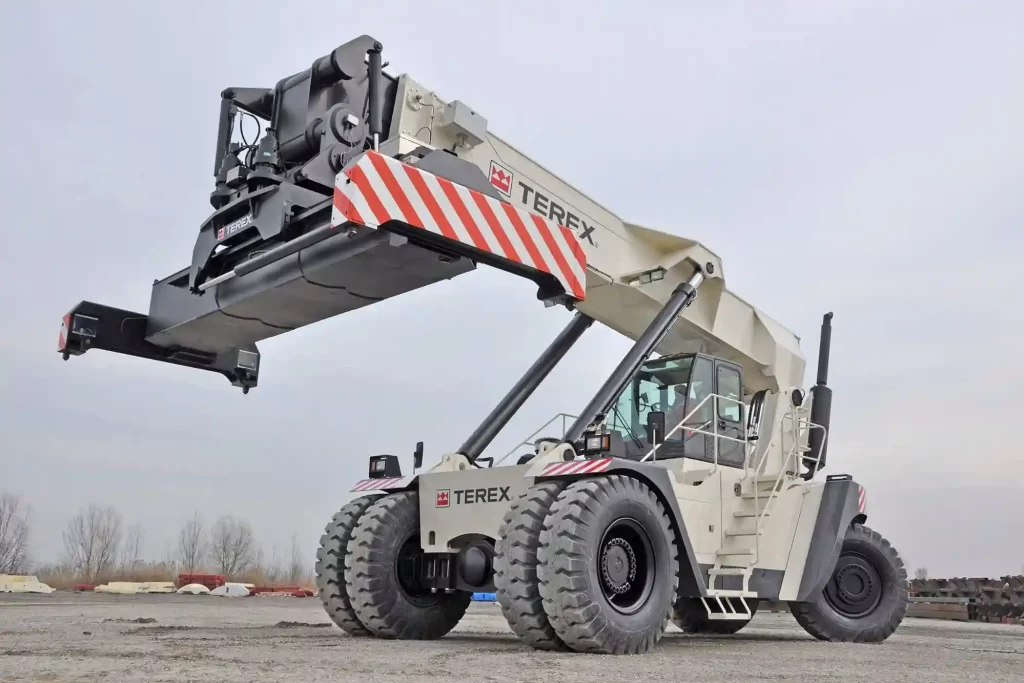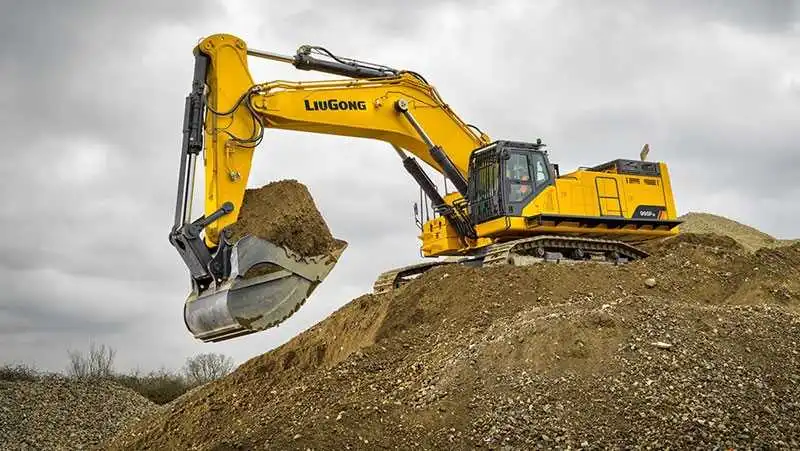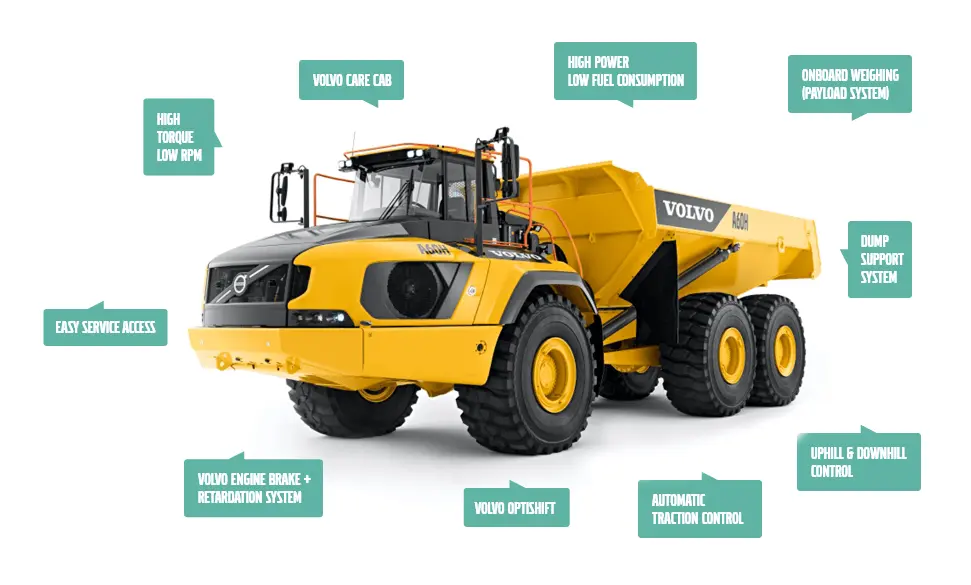Articulated Define: Understanding Articulated Vehicles
Articulated Define: Understanding Articulated Vehicles in Heavy Equipment
An articulated vehicle is a type of heavy machinery designed to provide high flexibility for maneuvering in difficult and narrow terrains. These vehicles have two main parts connected by a hinge, allowing the front and rear parts to move independently but remain controlled. This article will dive deeper into what articulated vehicles are, the types of articulated vehicles, their main functions, and the benefits they offer in the heavy equipment industry.

What Is an Articulated Vehicle?
An articulated vehicle is a type of machine made up of two main parts connected by a hinge joint. This joint allows the front and rear parts of the vehicle to move independently, giving it the ability to turn or maneuver in tight spaces, such as construction sites, mining operations, or agriculture. These vehicles are ideal for use in areas that non-articulated vehicles find hard to reach, as they minimize ground damage and enhance maneuverability.
Types of Articulated Vehicles
Several types of articulated vehicles are used in the heavy equipment industry, including:
Articulated Dump Truck (ADT)
ADTs are commonly used in mining and construction. These vehicles are designed to transport heavy materials across rough terrain. With their articulated design, ADTs can maneuver efficiently in tight spaces, making them an essential tool in mining sites.Articulated Wheel Loader
Articulated loaders are used to load, move, and stack materials like sand, gravel, or soil. The articulated design allows these loaders to operate in confined spaces while having a high capacity for transporting materials.Articulated Tractor
These vehicles are used to pull various heavy equipment in the field. Articulated tractors are commonly used in agriculture to tow implements like harvesters or soil grinders.
Functions of Articulated Vehicles in Heavy Equipment
Articulated vehicles offer several functions that make them highly beneficial in heavy equipment operations, including:
Improved Maneuverability
The flexible hinge joint allows articulated vehicles to make sharp turns and navigate tight spaces, which is critical in construction and mining sites where space is limited.Reduced Ground Pressure
Because of their lighter weight and even weight distribution, articulated vehicles exert less pressure on the ground, minimizing ground damage. This is crucial in areas with fragile or unstable terrain.High Flexibility and Mobility
Articulated vehicles can operate on challenging terrains that non-articulated vehicles cannot reach, making them versatile in industries like mining, construction, and agriculture.Efficient Material Transport
These vehicles can carry large amounts of heavy materials to hard-to-reach locations, improving operational efficiency on the job site.

Benefits of Using Articulated Vehicles
Using articulated vehicles in heavy equipment operations offers numerous advantages, such as:
- Ability to Operate in Tight Spaces: These vehicles are more efficient at maneuvering in cramped areas and rough terrains.
- Reduced Ground Damage: With a more even weight distribution, articulated vehicles cause less soil damage.
- Increased Productivity: Articulated vehicles enable faster and more efficient operations, reducing the time needed to transport materials.
Maintenance of Articulated Vehicles
Like other heavy equipment, articulated vehicles require regular maintenance to ensure optimal performance. Key maintenance practices include:
Routine Checks of Hinge Components
The hinge joint is a critical component of articulated vehicles. Regular inspections are necessary to ensure proper functionality.Proper Lubrication
The articulation joint needs proper lubrication to reduce friction and wear. Make sure lubrication is performed regularly according to the manufacturer’s recommendations.Vehicle System Inspections
Ensure that the hydraulic, braking, and electrical systems are in good condition for safe and efficient operation.Replacement of Worn Components
Articulated vehicles have various components susceptible to wear, such as tires and hinge joints. Replacing worn parts promptly can prevent further damage.
Common On-Site Incidents and Initial Handling
Despite their design for tough terrains, articulated vehicles can experience some incidents during operations. Common issues include:
Damage to the Hinge Joint
A damaged hinge joint can make maneuvering difficult or even halt the vehicle’s operation. Regular checks and proper lubrication can help prevent this problem.Overloading and Loss of Control
Overloading can cause instability and loss of control. Be sure to adhere to the recommended load capacity to avoid issues.Hydraulic System Failure
Hydraulic issues can stop vehicle functions. Routine checks and repairs are essential to avoid breakdowns.
Initial Incident Handling
If an incident occurs on-site, the first steps to take are:
Turn Off the Engine
To prevent further damage, immediately shut down the engine if issues arise.Inspect and Identify the Damage
Perform a thorough inspection of the vehicle to identify any damage. If necessary, call in a qualified technician for repairs.Contact a Repair Service Provider
If the damage requires further attention, contact a professional repair service provider, like SSC Works, to assist with fixing your articulated vehicle.
Conclusion
Articulated vehicles are incredibly useful tools in heavy equipment operations, especially in mining, construction, and agriculture. With their high maneuverability and flexibility in challenging terrains, these vehicles offer numerous benefits. If you need maintenance or repairs for articulated vehicles, SSC Works is ready to provide professional services to ensure your equipment stays in top condition.

